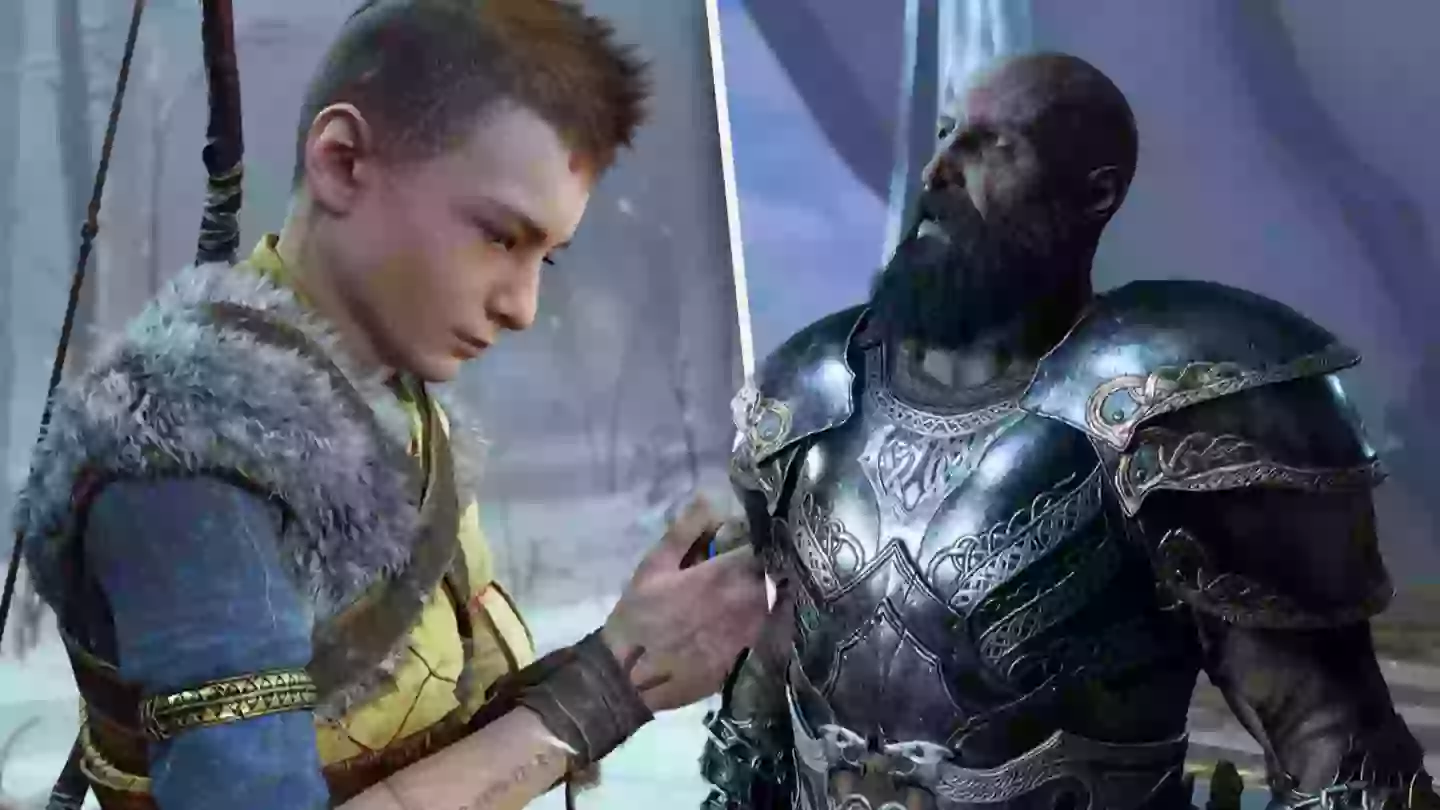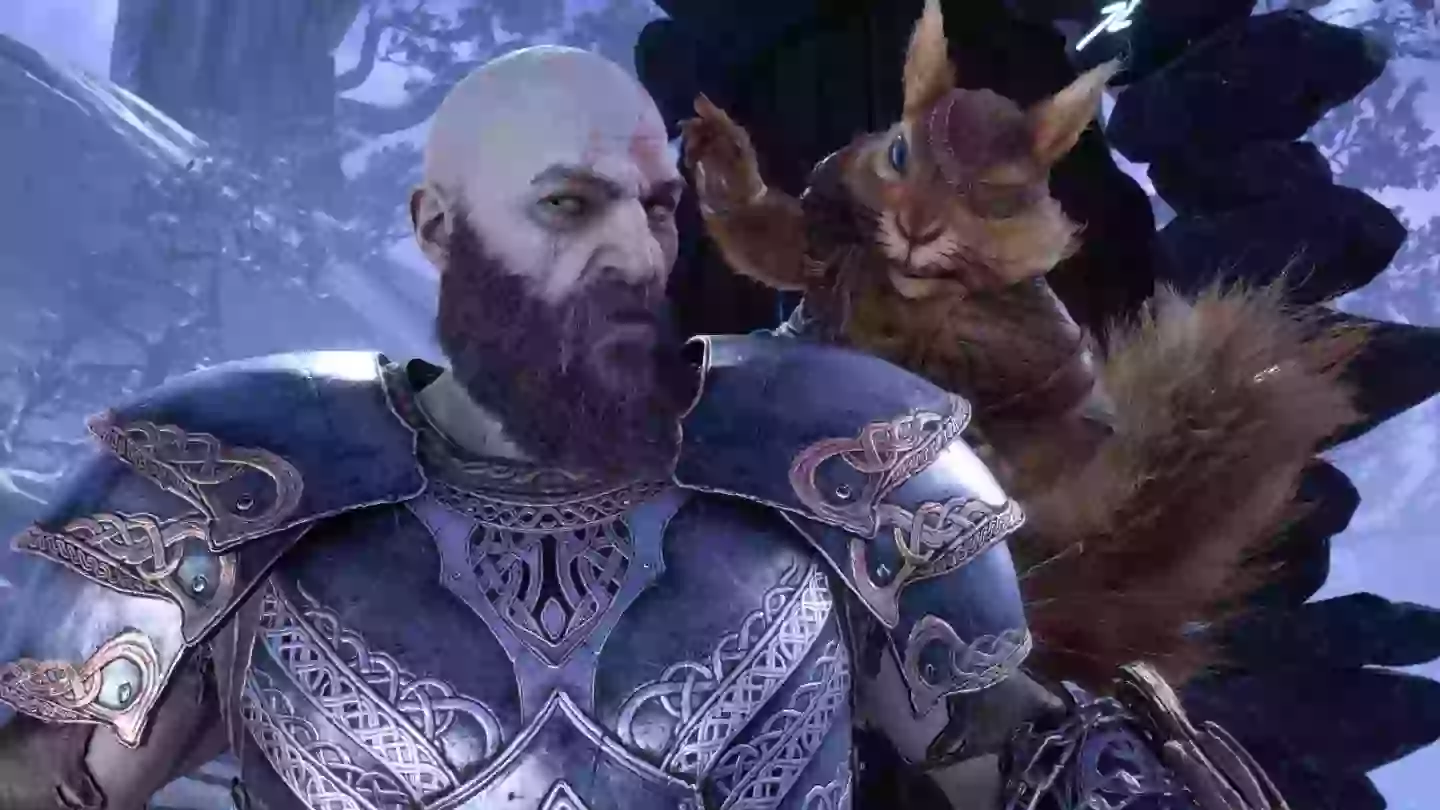
If I had to pick the main thing I’m drawn to in a game, it’s the narrative. It’s a well known fact among my peers that I will take any given opportunity to talk about The Last of Us, and I’m not going to disappoint them here. There’s a reason why I don’t shut up about that series. It’s not because I enjoy shooting Infected. It’s down to the fact that I could unpick the nuances of the story for days. If Part II had been released while I was still at university, I know with certainty that I would’ve used my dissertation to dissect its narrative.
This year, I counted down to the release of God of War Ragnarök. After all, I was so dazzled by the story in 2018’s God of War, and Ragnarök promised to be an epic end to the Norse Saga. What fascinates me so much about the franchise is that on paper, Kratos isn’t the most emotive of people. He says very little. He grunts a lot. He often shouts and yet, it’s always abundantly clear what he’s thinking or feeling. That’s true of both God of War and Ragnarök - and Christopher Judge totally deserves that Game Awards win. Saying that, I was surprised when God of War Ragnarök’s story took a long time to click with me.
Take a look at some gameplay from God of War Ragnarök below.
That’s not to say that I didn’t enjoy the story. In fact, I did - very much so - but my true appreciation for the narrative didn’t come until after the credits rolled. I continued to spend many hours completing all of the game’s side quests, which are some of the best I’ve ever played, and it was during this quieter period with the characters that I really appreciated what God of War Ragnarök provided: a touching tale between a father and son. With Atreus now off on his travels, I felt his absence strongly. I’d visit locations and be reminded of him even without Freya or Mimir prompting me to. This deep connection, to me at least, confirms that narratively God of War Ragnarök achieved what it set out to do.
Advert
I had to question then: why did I feel so underwhelmed by the narrative at first? And I truly believe it whittles down to what pop culture has trained our minds into thinking is good. Consider what we might class as ‘Event TV’ or ‘Event Cinema’ - Game of Thrones, Avengers: Endgame ... those types of projects all tick the box. I love both of the aforementioned titles but such high profile projects often have a very headline-worthy focus when it comes to telling a story. The narrative often revolves around plot twists, shock deaths, character cameos... the story beats that are going to have everyone talking the next day.

You need look no further than the Star Wars franchise to see it in action. The Book of Boba Fett and Obi-Wan Kenobi were both great fun, but they were essentially fan-service vehicles. Andor broke away from that trend, and is the greatest Star Wars project in years because of it, but it was talked about far less online. Telling a story with a headline-driven focus leads to viewers, but not necessarily quality.
Ragnarök is one of the biggest event games of the year. The trailers teased an epic scale, with huge realms for us to explore. Let’s not forget that ‘Ragnarök’ itself is a world-ending event. Maybe I’m alone in this, but my mind tricked me into hoping for those headline-worthy story beats, yet they didn’t come. There was one gasp-out-loud moment that I won’t reveal for spoiler’s sake but for the most part, God of War Ragnarök’s story slowly trickled along. I found it very easy to avoid spoilers online and it’s not that they don’t exist, but Ragnarök just simply doesn’t rely on that kind of storytelling - a kind that can often be lazy or cheap. It didn’t stuff its chapters with pointless deaths or cheap revelations. Instead, Ragnarök opted to tell a nuanced story that I feel stupid for not appreciating straight away. Now that I do, I can safely say that God of War Ragnarök is my favourite gaming narrative of the year - and I’m so glad it didn’t fall into those ever-common pop culture pitfalls I was wrongfully hoping for.
Topics: God Of War, PlayStation, Santa Monica Studio, Opinion